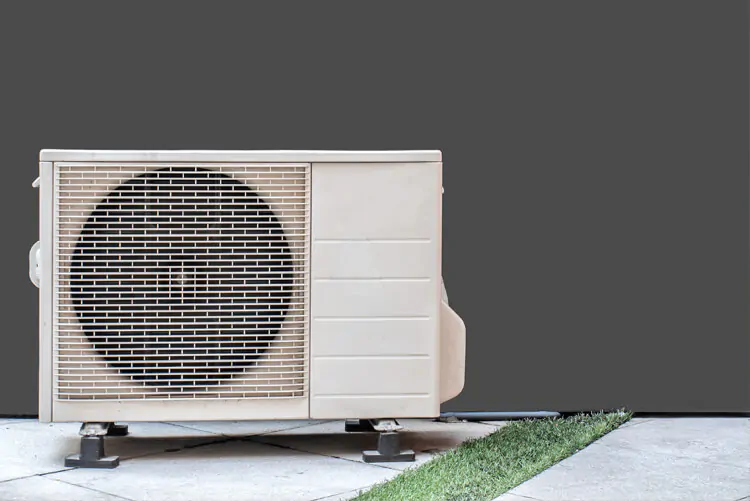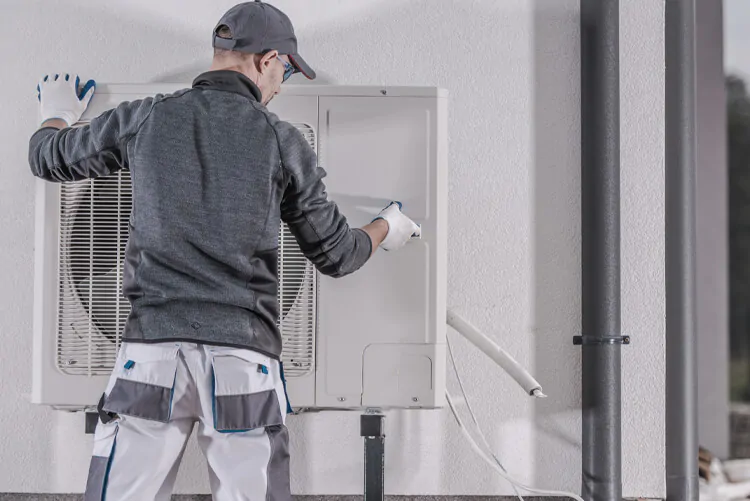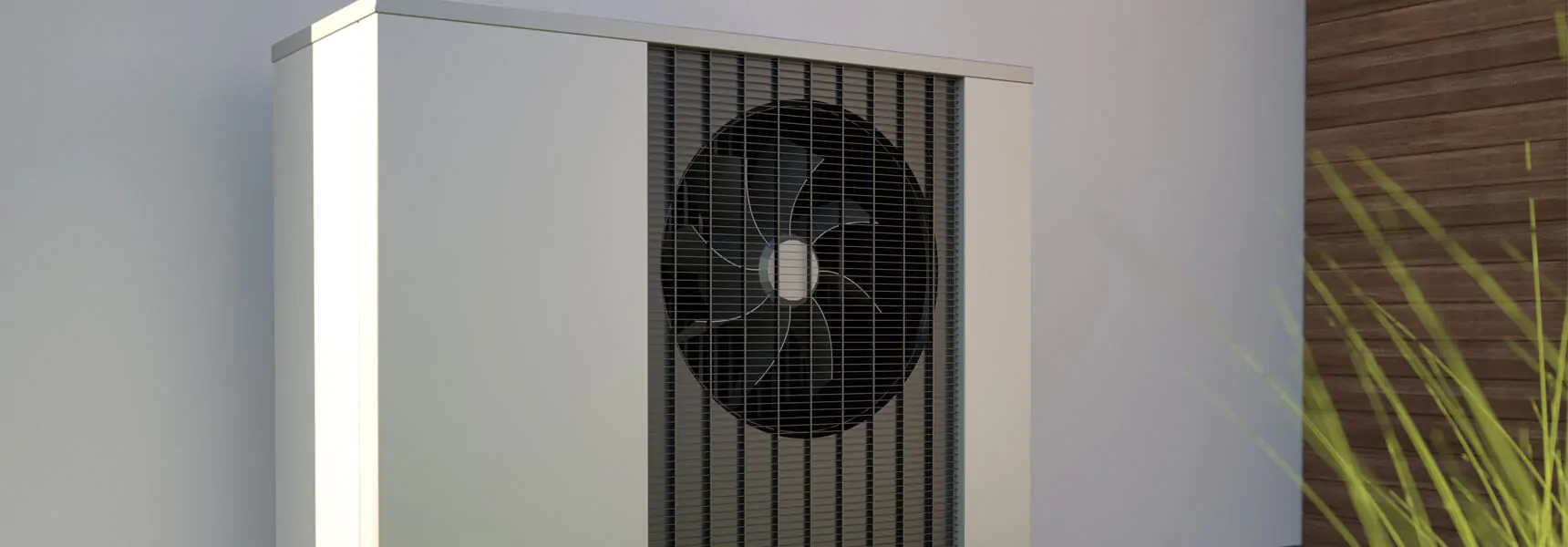
What is an air source heat pump?
Air source heat pumps are, essentially, exactly what they sound like: a renewable heating solution which draws heat from the air outside, even when temperatures are below freezing.
Basically, they work a little like a reverse refrigeration unit: the pump absorbs heat into a liquid refrigerant, keeping it at a maintained low temperature. It then compresses this liquid to increase its heat, before condensing it back down into a liquid.
Air source heat pumps are able to extract heat from outside air as cold as -15°C, but it’s worth keeping in mind that the colder the outside temperature, the more electricity will be utilised by the pump to maintain the heat. Essentially, this allows the heat pump to use residual heat from any outdoor area and transfer it to a building.

Air source heat pumps are on the rise
In 2020 alone, over 1.5 million heat pumps were installed across Europe, with tens of thousands of those installations thought to have been in the UK – and for good reason. Most heat pumps are both more cost and energy efficient, and as of April 2022, homeowners in England and Wales who choose to an \ir source heat pump are eligible to redeem a considerable grant towards the installation of a system, due to the new Boiler Upgrade Scheme.
That’s why, today, we’ll be discussing one such of these heat pump systems: Air Source Heat Pumps; what exactly they are, how they work, the benefits of utilising one for your home, and any additional considerations you’ll need to take into account before you commit to installing one.
What makes air source heat pumps more energy efficient?
Current research suggests that heat pumps, in general, can reduce household energy consumption by up to 72%, in comparison to more traditional boilers and heating options. Naturally, how much your carbon footprint is impacted by switching to an air source heat pump does depend on how much energy your current boiler or heating solution currently expends, but there’s no denying that they are a much more efficient use of energy than many alternatives.
Whilst air source heat pumps do require some electricity to run, they output more energy than they expend – meaning if you choose to opt for a renewable energy source to power yours, you could have a total carbon neutral heating solution!

What are the benefits of using air source heat pumps?
There are a substantial number of upsides to using air source heat pumps:
- Minimally disruptive installation. Unlike some alternative heating options, like ground source heat pumps, the installation for air source heat pumps is minimally invasive, as they often take the appearance of conventional air conditioners, and can therefore be installed without needing to excavate or remodel. They can also usually be installed in a matter of days.
- Cost efficient. Not only could this particular type of heat pump save you a significant amount of money on your energy bills, due to significantly reducing emissions, but installing one could make you eligible for the Renewable Heat Incentive, which offers financial support to individuals who utilise specific renewable technologies in their homes.
- Low maintenance. With regular maintenance and checks, well-installed air source heat pumps can last in excess of 20 years, making them a great long-lasting boiler and heat solution.

What are the downsides of using air source heat pumps?
As with all heating and boiler solutions, there are of course some potential pitfalls when it comes to opting for air source heat pumps:
- Can be invasive. Whilst air source heat pumps can be relatively compact, you will need enough space in your garden to fit the external condenser unit, which can also be relatively unsightly. They can also be quite loud, so ensuring there’s a significant distance surrounding the unit is important.
- Cooler than some alternatives. This particular type of heat pump doesn’t keep water as warm as some alternatives, so may need additional insulation and larger radiators within the home in order to effectively heat the property.
Air Source Heat Pump Questions
Can air source heat pumps be used for heating and cooling?
Depending on the model, air source heat pumps can be used to both heat your home in the winter and cool your home in the summer.
It is important to check the Coefficient of Performance (CoP) is above 0.7 for cooling and 1.2 for heating
Does an air source heat pump have a low carbon footprint?
Because air source heat pumps use the outside air to heat or cool your home they are considered a low carbon heating source.
Are there different types of air source heat pumps?
There are two main types of air source heat pumps in the UK. These are Air to Air heat pumps and Air to Water heat pumps
Where are air source heat pumps installed?
Air source heat pumps are installed outside your home. This is because the unit draws in the outside air and compresses it into warm air

